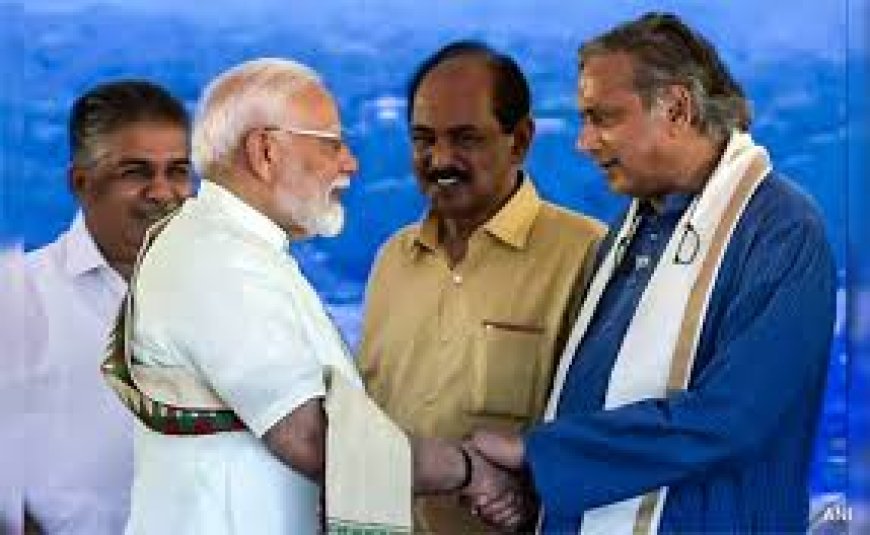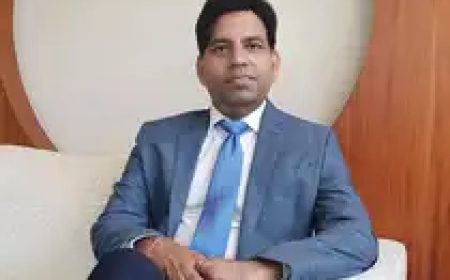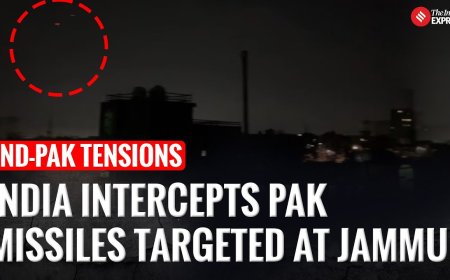7 Indian MPs to Promote Global Anti-Terror Agenda; Shashi Tharoor to Lead Strategic Outreach
India appoints 7 MPs, including Shashi Tharoor, to represent its anti-terrorism stand globally. The initiative aims to amplify India’s voice in global counter-terrorism discourse.

7 MPs to Carry Anti-Terror Message to World: Shashi Tharoor Gets Strategic Role in India’s Global Push
Introduction: Parliamentarians as Global Diplomats
In a decisive move blending soft power with strategic security diplomacy, India has appointed a team of seven Members of Parliament to represent the country’s anti-terrorism agenda across global platforms. This high-level delegation, comprising both seasoned statesmen and emerging voices in Indian politics, will spearhead a focused diplomatic effort to rally global opinion against terrorism. Notably, Congress MP and renowned diplomat Shashi Tharoor has been assigned a key leadership role in shaping and delivering India’s counter-terror narrative internationally.
This marks a significant departure from traditional diplomacy, as India integrates legislative leaders into international dialogue on terrorism — reflecting the gravity of the global security threat and the urgency to reposition India's stance more assertively.
Objectives: What India Aims to Achieve
The mission is clear — to amplify India’s anti-terror voice at international forums, promote global cooperation on counter-terrorism, and expose the double standards often seen in global reactions to terrorism. The delegation’s objectives include:
-
Lobbying at the United Nations and international security conferences.
-
Highlighting India’s own experiences with cross-border terrorism.
-
Calling out nations that harbor or sponsor terrorism.
-
Advocating for a comprehensive global treaty on terrorism.
-
Strengthening India’s image as a responsible, resilient democratic power.
With Shashi Tharoor’s rich experience in the United Nations and global diplomacy, the move signals India’s intention to bring credibility, intellect, and gravitas to this outreach.
Meet the Delegation: MPs Taking the Fight Global
While official notifications list the final lineup, the core team includes a bipartisan mix of leaders from various political affiliations, suggesting a united front on national security.
1. Dr. Shashi Tharoor (Congress)
A former Under-Secretary-General at the United Nations and a sitting MP from Thiruvananthapuram, Tharoor brings not only global recognition but an intellectual depth critical to nuanced diplomacy. He is expected to lead key delegations to UN bodies, think tanks, and strategic forums like the Munich Security Conference and Davos.
2. Meenakshi Lekhi (BJP)
Known for her articulate advocacy on global platforms, Lekhi's legal acumen and ministerial experience in external affairs and culture will be invaluable.
3. Ritesh Pandey (BSP)
Representing a younger political voice, Pandey may connect well with emerging economies and civil society stakeholders in Africa and Latin America.
4. Jamyang Tsering Namgyal (BJP)
As an MP from Ladakh, Namgyal can powerfully convey the realities of India’s border vulnerabilities and bring a Himalayan regional perspective.
5. Manish Tewari (Congress)
A lawyer and former Minister of Information and Broadcasting, Tewari can lend depth to legal arguments on state-sponsored terror.
6. Rajiv Chandrasekhar (BJP)
With a background in tech and defence, Chandrasekhar’s presence is strategic for discussions on cyberterrorism and hybrid warfare.
7. Supriya Sule (NCP)
Bringing balance to the delegation, Sule's presence offers both gender representation and a progressive liberal lens.
Together, this group embodies India’s pluralism and its all-party consensus on the fight against terrorism.
Global Platforms Targeted
The MPs are expected to engage with a mix of formal and informal platforms, including:
-
United Nations (UNGA, UNSC briefings)
-
Global Counter-Terrorism Forum (GCTF)
-
FATF meetings and side events
-
World Economic Forum (Davos)
-
Regional dialogues like BRICS, SCO, and SAARC (where applicable)
Their engagements will range from delivering keynote speeches, holding bilateral meetings, participating in panels, to lobbying for stronger anti-terror language in multilateral declarations.
The Strategic Role of Shashi Tharoor
Tharoor’s appointment is strategic on several counts:
-
UN Experience: Having served at the UN for nearly three decades, Tharoor understands the nuances of multilateral diplomacy better than most politicians.
-
Credibility: His international standing lends weight to India’s arguments, especially when countering narratives from nations like Pakistan or China.
-
Language of Diplomacy: Tharoor’s command over discourse, from legal framing to moral appeal, is unmatched in Parliament.
-
Bridge-builder: Tharoor is well-positioned to connect with the Western liberal establishment, academia, and media — often influential in shaping global narratives.
His role will likely include drafting India’s messaging strategy, coordinating with the Ministry of External Affairs, and mentoring younger MPs in navigating global corridors of power.
🇮🇳 Why Now? The Timing Is Critical
The timing of this move isn’t accidental. Several factors make this the right moment:
-
Rising Cross-Border Tensions: Recent security concerns along the LOC and the Indo-Myanmar border have again highlighted India’s vulnerability to terrorism.
-
Global Disinterest in India’s Security Concerns: India often finds that the global community is selective in condemning terrorism — quick to react in the West but slow when India is attacked.
-
Geopolitical Shifts: With the U.S. and Europe distracted by conflicts in Ukraine and Gaza, and China expanding its strategic footprint, India needs to actively promote its own narrative.
-
G20 Presidency Afterglow: Following India’s successful G20 presidency, the global goodwill can be channeled into building consensus on counter-terror cooperation.
The Global Messaging Strategy
India’s messaging will center on a few key pillars:
-
“No Good Terrorist vs Bad Terrorist” Paradigm: India will argue for an end to geopolitical hypocrisy where some acts of terror are condemned while others are ignored or justified.
-
Comprehensive Convention on International Terrorism (CCIT): India has long proposed this UN treaty to define terrorism and create enforcement mechanisms. The MPs will reignite this demand.
-
Highlighting State Sponsorship: The delegation is expected to present dossiers and cases where India has evidence of state-backed terrorism, particularly from Pakistan and groups operating out of Afghanistan.
-
Cyberterrorism and Radicalization: The MPs will also engage in discussions on new-age terror threats such as online radicalization, crypto-funded terror networks, and dark web operations.
-
Protecting Developing Countries: India will argue that developing nations are often the worst hit by terror and deserve greater support and technology to fight it.
Reactions and Responses
Political
Opposition parties, though skeptical of motives in an election year, have largely supported the initiative given the bipartisan makeup of the delegation.
“Terrorism is an issue that transcends party lines. We are glad to see senior MPs representing India unitedly,” said a senior Congress leader.
Strategic Community
Experts have lauded the idea as innovative diplomacy.
“MPs can speak freely in forums where diplomats are constrained. They can put out hard-hitting truths without risking bilateral fallout,” noted a former Indian envoy to the UN.
Challenges Ahead
Despite the potential, this initiative will face several hurdles:
-
Limited Formal Power: MPs are not official government representatives abroad. Their statements, though strong, may not always influence policy.
-
Diplomatic Pushback: Certain nations will resist India’s assertive posturing, especially when named and shamed.
-
Narrative War: India must compete against well-funded information campaigns by adversarial states and global NGOs often sympathetic to separatist causes.
Nevertheless, the platform provides India a new avenue to campaign against terrorism globally.
Redefining Parliamentary Diplomacy
India’s decision to send seven MPs to the global stage to champion the fight against terrorism is both bold and necessary. It underscores the country’s growing confidence in combining moral authority with political outreach. By leveraging figures like Shashi Tharoor — who command respect globally — alongside a diverse parliamentary cohort, India is rewriting the rules of 21st-century diplomacy.
In an increasingly polarized world, India's anti-terror message — articulated not just by bureaucrats but also elected lawmakers — may finally compel the world to listen, act, and stand up against terrorism in all its forms.
What's Your Reaction?
 Like
0
Like
0
 Dislike
0
Dislike
0
 Love
0
Love
0
 Funny
0
Funny
0
 Angry
0
Angry
0
 Sad
0
Sad
0
 Wow
0
Wow
0












































































